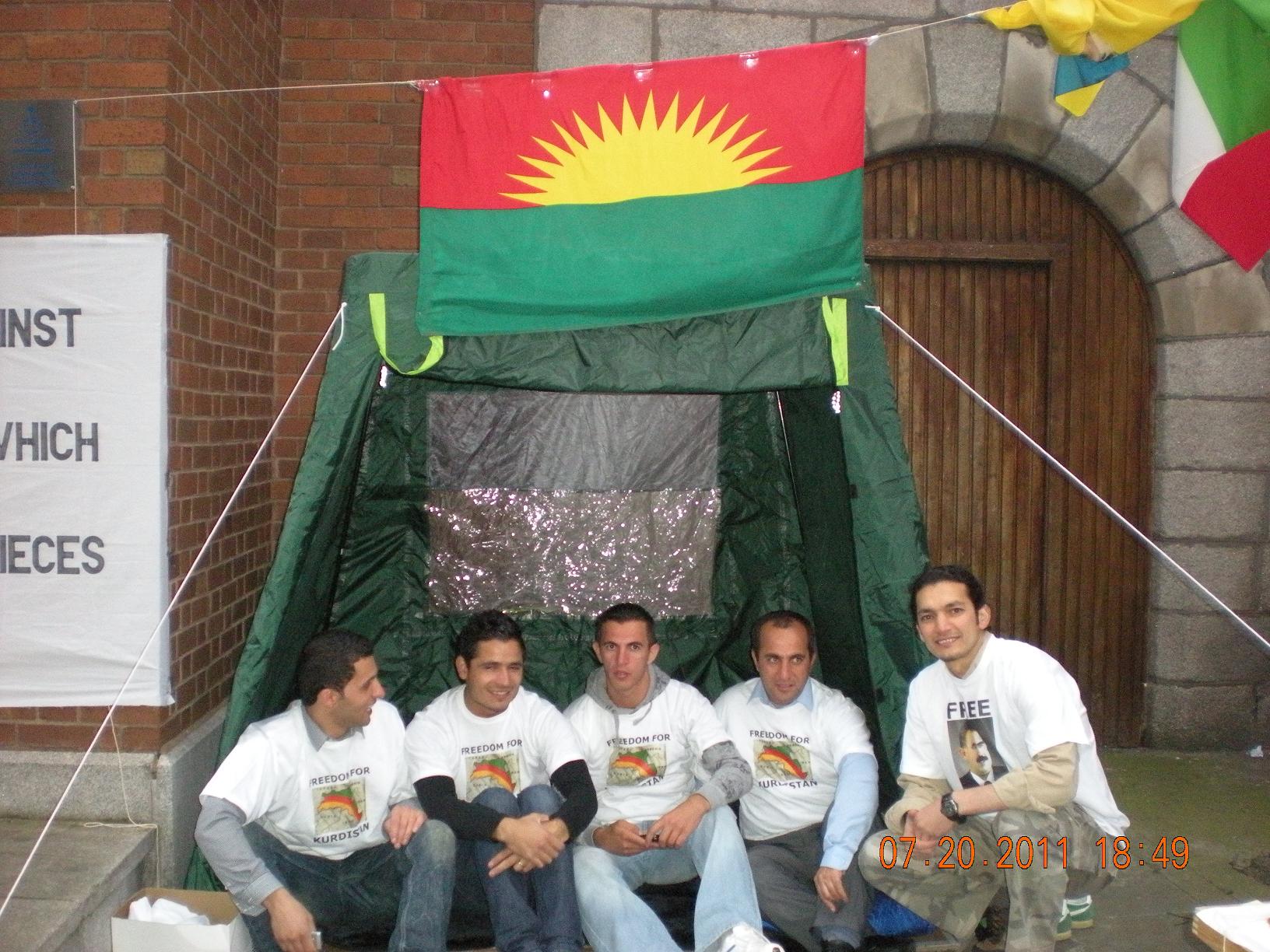 DUBLIN, — Kurds are in an indefinite hunger strike in Dublin to protest against Lausanne Treaty and the latest Iranian invasion of South Kurdistan.
DUBLIN, — Kurds are in an indefinite hunger strike in Dublin to protest against Lausanne Treaty and the latest Iranian invasion of South Kurdistan.
The hunger strike started on Wednesday 20th July outside of European Union House, Dublin 2, and today it’s entering its 7th day.
The hunger strike marks the 88th anniversary of Lausanne Treaty signed on 24th July 1923 which officially divided Kurdistan between Turkey, Iran, Iraq, and Syria. It also marks the current invasion of Kurdistan by Iranian Revolution Guards Corps which started on 16th July.
Lausanne Treaty denied the very existence of the Kurds and exposed them to the most horrendous state terror that one nation could ever be subjected to. Ever since then Kurds have been subjected to the state oppressions of Turkey, Iraq, Iran and Syria. Although the Kurdish population is estimated around 40 million but its identity is not recognised by the occupying powers of Kurdistan. In Turkey Kurds are referred to as ‘Mountain Turk’. Kurdish language is prohibited in public and anyone who comes out in defence of their national rights is labelled as ‘terrorist’. Currently 2000 Kurdish democratically elected politicians are imprisoned under the charge of ‘terrorism’. Around 3000 Kurdish children jailed under charge of ‘terrorism’.
Since Lausanne Treaty numerous Kurdish revolts have taken place but as Kurds are encircled by enemies form all sides, all these revolts have been supressed and Kurds subjected to genocidal scale of state terror. During 1980s over 182,000 innocent Kurds were massacred by Saddam’s regime. The Islamic Republic of Iran declared Jihad against the Kurds in 1979 and massacred thousands of them. In Syria, Kurds do not possess Syrian citizenship and lack any ID card; they are treated as refugee in their homeland!
The Kurdish Association of Ireland launched a hunger strike to protest against the crimes committed against the Kurds and demands:
• Revocation of Lausanne Treaty or its replacement by another pact where the rights of Kurds to self-determination as enshrined by the international laws is recognised.
• Full cessation of violence carried out by the Iranian Revolution Guards Corps in Kurdistan and the withdrawal of its troops from the Kurdish areas.
• Europe had role in dividing of Kurdistan, and now, while Middle East is going through change there is an opportunity for EU to support the Kurds to find a democratic solution to the Kurdish issue.
Kurdish Association of Ireland – 26/07/2011
Spokesperson: Ekrem Yavuz, 0852114150